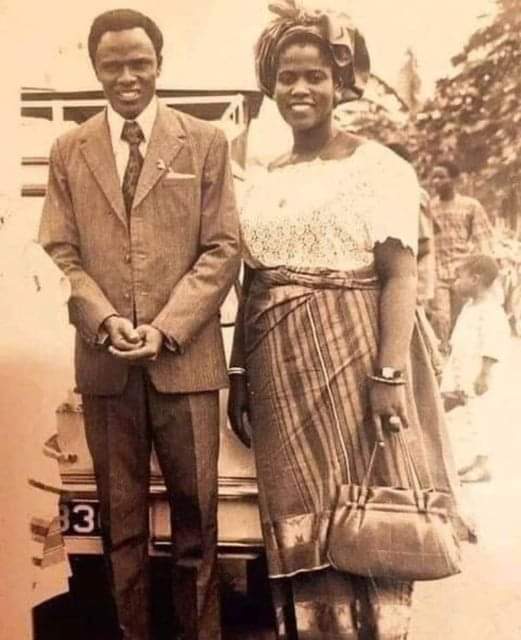In ancient Rwanda, storytelling took an important place in children’s early cultural and psychological education.
As older men and grown up boys sat around an open fire at night, listening to the wisdom of the elders as they talked and bragged about their past accomplishments, small boys and girls sat gathered around their mothers and grandmothers, as the latter told them stories or sang them sweet lullabies.
As a boy of about 7 or 8 years, I remember a fantastic but delightful story my grandmother told me, which will, I believe, equally fascinate young boys and girls of this generation, or grown ups that never had the chance to be told it during their young days.

Harabaye ntihakabe! Hapfuye imbwa n’imbeba! Hasigaye inka n’ingoma!
Translated into English, these Kinyarwanda words are read as: There has been and there should not be! Dogs and rats died!
Only cows and the crown (of the king) survived. As was the tradition, these words were always required as a preamble, at the beginning of each new story.
Once upon a time, there was a man whose name was Maguru ya Sarwaya. This man, Maguru, as he was fondly called in short by his admirers, could run faster than the wind and the rain.
At that time, there came a great famine, and a great number of people and beasts were dying of hunger all over the kingdom. One day, the King summoned Maguru to his palace and said to him:
“Maguru. I have called you here today before me, because of a very serious matter of state. As you know, there has been no rain for a very long time now.
All the reserves in the granaries from our past harvests are exhausted and, people and cows are dying in massive numbers because there is no more food.
This has got to stop!”
“What is it oh King? What must stop and how can I stop it?” asked Maguru. “Speak now for your wish is my command.”
“The famine must end. The rains must return” the King explained. ‘And, according to my oracles, for the rains to return, I must be availed with the tail of an Insibika before the new moon shines.”
At the mention of the word Insibika, Maguru’s heart missed a beat.
The Insibika were the fiercest, cruelest, fastest animals that ever lived in the kingdom and beyond. These beasts lived in a distant forest many weeks away, and it was required to cross seven wide, rough rivers, a very big task for an ordinary man.
But Maguru was no ordinary man. He was gifted with speed as a means to his survival. Besides, as Maguru well knew, the King’s request was no request at all. It was indeed an order, a command.
He had to abide by that command. “Your Majesty,” Maguru said, “I shall leave at cockcrow, and, as truly as my name is Maguru, I shall bring you the tail of the Insibika before the new moon shines.”
On that promise, Maguru left the presence of the King and went to his house where his mother was waiting for him to hear why the King had summoned him. “Mother,” he told her.
“ I am leaving on a very important but dangerous mission for the King. Before the new moon shines, I must bring him the tail of the Insibika, in order to avert the doom looming over our country.”
“And you have agreed to carry out that task, you thoughtless idiot?
Have you thought about the fact that nobody ever encountered an Insibika and survived, let alone cut its tail?”
“Yes mother,” said Maguru. “I am afraid I did. But, as you very well know, you cannot go against the wishes of the King. So, at cockcrow, I must leave for the land of the Insibika.
And please listen very carefully. In the event that a leaf tinted with a drop of blood falls in your bosom, it will be a sign that my life is in danger. If that happens, release all my dogs.” On this, Maguru took leave of her mother and went to his own hut.
Dawn found him already on his way, and before the sun had properly set, he was at the bank of the first of the seven rivers separating him from the land of the Insibika.
Here were quite a number of people waiting for their turn to be taken across the river, by a few paddleboats that were to and-fro-ing across the river.
Maguru wanted to also be transported, but he soon found out that the charges demanded were exorbitant for him to afford. So, he simply took a few steps backwards, and, to the general astonishment of the people present, he flew across the river.
His journey was made in almost a similar fashion as he one by one, crossed the seven rivers before he reached the land of the Insibika.
However, at the seventh river, it was quite clear that the features of the land and the type of trees and the vegetation had changed, for this was the beginning of the forest in which the Insibika claimed as their domain. Woe to whomsoever trespassed.
And so, always a cautious man, Maguru decided to be more careful and make enquiries from the locals of the area. First he tried a young boy who was playing alone, a little apart from other groups:
“Tell me my boy, do you know where the Insibika live? “Maguru asked quietly. In response, the young boy took to his heels, and went off as fast as his legs could carry him.
Such was the fear the boy had of the beasts. Maguru was not very much surprised, but neither was he deterred from his mission. So he decided to approach a much more mature man whom, he thought might a least talk to him man to man.
But, as soon as Maguru mentioned the word Insibika, the man abruptly turned his back on him, and walked way, without a word.
Perplexed, Maguru sat down to think out the best way to solve his problem. As he sat thinking, he looked around him, and saw a very old woman sitting by herself, as if lost, deep in thought.
Maguru went to her and said to her:
“Good evening mother.
Is there anything I can help you with? You look tired and worried!” The elderly woman looked up and considered Maguru, and, in a quiet voice said to him:
“No, my son, I am not tired, I am not worried and I do not want help. But, on the other hand, you look like a stranger, somebody who is seeking help, or something else. What is it that you want from me?”
“Forgive me, mother,” Maguru said, “if I disturbed your peace.” “But, yes, I am a stranger, I am seeking the land of the Insibika, and I would be grateful if you could show me the way.”
At this, the old woman looked up again, her expression completely changed, her face registering something akin to deep fear and complete disbelief.
“Who are you?” The old woman asked incredulously. “Where do you come from? You want to go to the land of the Insibika? Why? Are you tired of living?”
Maguru briefly narrated the circumstances that led to his present predicament, taking care to mention that it was a matter of survival for his country and countrymen, that he was ready to sacrifice his life in order to save his people, and that he was determined not to fail.
“I simply must find the tail of an Insibika and take it back to my country otherwise my people shall all perish,” he ended.
The old woman, gazing at some distant point in space as if in deep thought, sadly shook her head and without bothering to look at Maguru, she went said:
“Listen to me young man. Look at me and listen to me carefully. I am too old now I don’t even know my age. But this ‘calabash’ of mine that I call head, over this ‘carcass’ that I call body, is full of knowledge and infinite wisdom.
Ever since I was a young girl who could comprehend the ways of the elders, I have seen and heard a lot in this land. Some of the things that I heard from the elders are that, over that hill yonder, live the Insibika you are seeking.
But I also heard that if you venture beyond that hill, you would never be seen or heard of again.
I have never seen anybody go over that hill and come back again. Except my husband, the only person I ever cared for.” At this point, the old woman shoulders sagged, and she seemed more tired than ever, but she quickly recovered and went on:
“This was a many, many moon ago. My husband, the only one among a thousand warriors who had gone to hunt down the Insibika in the quest for more land, came back his clothes and body in tatters. He later died in my arms.
But before he breathed his last, he left me with an important message to the people: ‘Let nobody ever cross that hill, for, over that hill lays doom.
Over that hill live the Insibika, and the Insibika are indomitable. If I survived this carnage, it is not because I am invincible.
It is fate. I am going to die now, but let nobody try to revenge my death, because that is going to cost even more lives to our people. Let there be no doubt whatsoever, the Insibika are really invincible’.”
NewLatter Application For Free







